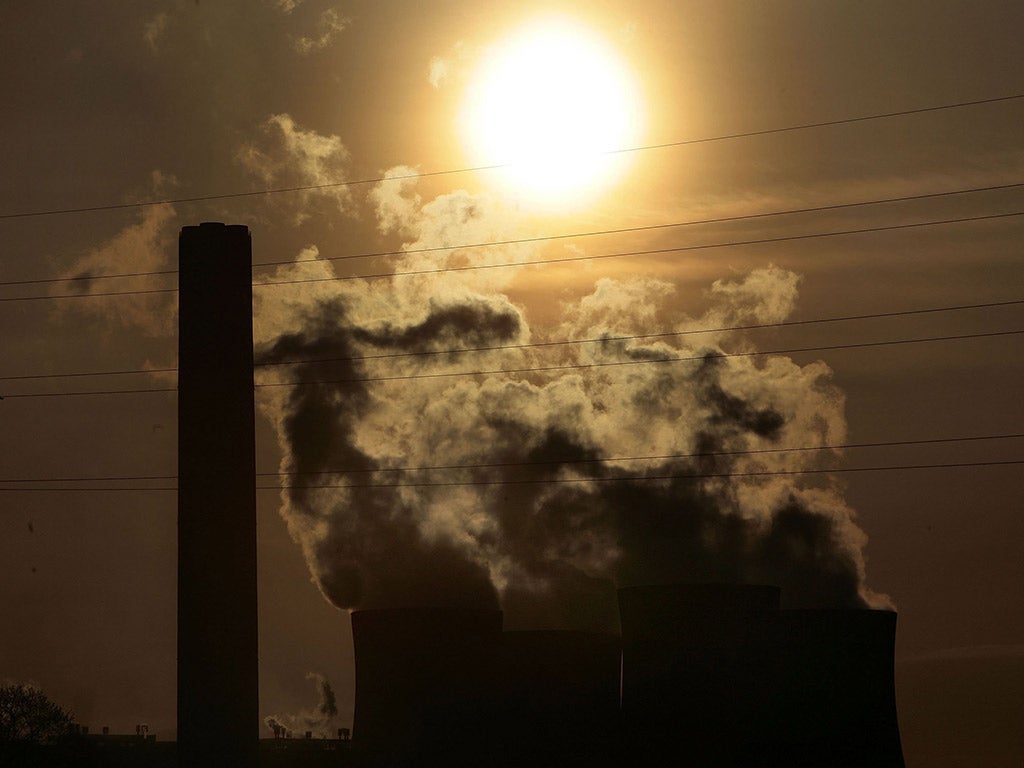Autumn Statement: Government slammed after quietly scrapping £1bn project to cut carbon emissions
The announcement means there are now no carbon capture and storage projects in the UK

Your support helps us to tell the story
From reproductive rights to climate change to Big Tech, The Independent is on the ground when the story is developing. Whether it's investigating the financials of Elon Musk's pro-Trump PAC or producing our latest documentary, 'The A Word', which shines a light on the American women fighting for reproductive rights, we know how important it is to parse out the facts from the messaging.
At such a critical moment in US history, we need reporters on the ground. Your donation allows us to keep sending journalists to speak to both sides of the story.
The Independent is trusted by Americans across the entire political spectrum. And unlike many other quality news outlets, we choose not to lock Americans out of our reporting and analysis with paywalls. We believe quality journalism should be available to everyone, paid for by those who can afford it.
Your support makes all the difference.The Government has been fiercely criticised after it quietly scrapped a £1bn project to cut carbon emissions and removed more “green crap” from household energy bills.
In a move the Treasury omitted to mention in its Autumn Statement announcements, a pilot project to develop a new technology that can capture the emissions from gas and coal plants and pipe them underground has been scrapped.
The announcement, confined to a stock market news website, means there are now no carbon capture and storage (CCS) projects in the UK.
Experts said ending the project would make it much harder for the UK to meet its ambitious climate change targets, given the central role that gas is set to play in the country’s energy sector.
“Without CCS it’s unclear how gas can be a central part of the power system and the Government still be committed to tackling climate change,” said Dr Doug Parr, Greenpeace UK’s chief scientist and policy director.
Dr Luke Warren, chief executive of the Carbon Capture and Storage Association, added: “This announcement is devastating. Moving the goalposts just at the time when a four-year competition is about to conclude is a real blow to confidence for companies investing in CCS.
“Without concrete government support for CCS the Government will lose the opportunity for cost-effective decarbonisation.”
The CCS announcement came after the Chancellor revealed further cuts to energy budgets in his Autumn Statement. A new, cheaper, energy-efficiency scheme will replace the existing Energy Company Obligation (ECO), which requires the Big Six energy firms to better insulate the homes of Britain’s poorest households. The cost of the ECO scheme is added to household bills and the change will save 24 million households an average of £30 a year – helping David Cameron to keep his reported pledge to remove the “green crap” from bills.
A subsidy scheme for green heat – known as the Renewable Heat Incentive – will also be reformed, saving about £700m by 2020.
Furthermore, the Department of Energy and Climate Change (DECC) and the Department for Environment, Food and Rural Affairs (Defra) had their day-to-day budgets cut by 22 per cent and 15 per cent, respectively.
However, the Government stressed that spending on energy research would double, with a particular focus on small modular nuclear reactor; and it committed more than £2bn to protect 300,000 people from flooding.
Campaigners strongly criticised the Autumn Statement. “The Chancellor’s green-bashing is a further reminder that our environment is not safe in his hands,” David Powell, a senior campaigner with Friends of the Earth, said.
“With critical climate change talks in Paris just around the corner, George Osborne has shown he couldn’t be less interested in green investment and building a low-carbon future.”
David Nussbaum, head of WWF-UK, added: “Today’s cuts will imperil the environment and undermine the economy. How will a depleted Defra have the muscle within Whitehall to stand up for our natural world, at a time when 60 per cent of our species are in decline? How will a disempowered DECC accelerate the essential transition to a low-carbon economy.”
Join our commenting forum
Join thought-provoking conversations, follow other Independent readers and see their replies
Comments